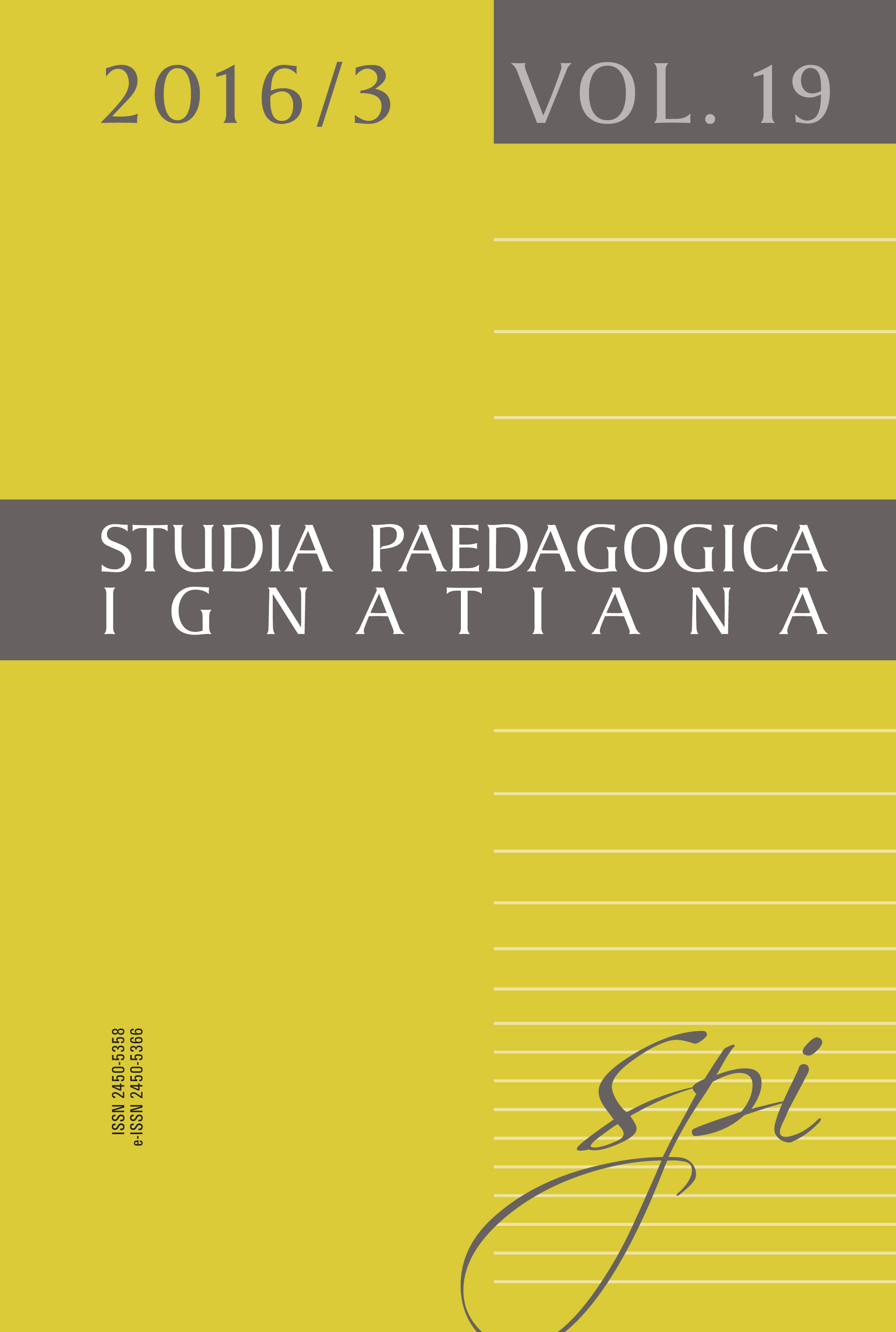Introduction
DOI:
https://doi.org/10.12775/11671Abstrakt
Talking and writing about history is a manifestation of creating a continuity of tradition which expresses itself in presenting particular schools of thought and courses of action in various
epochs. It may be argued that “Every epoch has its special goals in store” quoting words from Adam Asnyk’s poem “To the Young”. Recalling them (goals and ideas) is an expression of creating the above-mentioned continuity of historical ideas, as well as, educational ones.
The source of every action is a thought. Searching for the genesis of human thought, also the educational one, is an attempt to answer the question: who do we inherit certain ideas, rules and values from, who is their creator and continuator? Thereby, based on such understanding of historical research, the credibility of R.W. Emerson’s message is confirmed. This American poet and essayist, whom Adam Mickiewicz named “the American Socrates”, argued that “only those who build on ideas, build for eternity”. The same author, when considering the issue of validity of social institutions, claimed that “No institution can be better than its creator”.
Pobrania
Opublikowane
Jak cytować
Numer
Dział
Licencja
Autor zgłaszając swój artykuł oświadcza, że:
jest Autorem artykułu (zwanego dalej Utworem) i:
- przysługują mu wyłączne i nieograniczone prawa autorskie do Utworu,
- jest uprawniony/a do rozporządzania prawami autorskimi do Utworu.
Udziela Uniwersytetowi Ignatianum w Krakowie nieodpłatnej, niewyłącznej, nieograniczonej terytorialnie licencji do korzystania z Utworu na następujących polach eksploatacji:
- utrwalania utworu w formie papierowej, a także na nośniku cyfrowym lub magnetycznym;
- zwielokrotnienia utworu dowolną techniką, bez ograniczenia ilości wydań i liczby egzemplarzy;
- rozpowszechniania utworu i jego zwielokrotnionych egzemplarzy na jakimkolwiek nośniku, w tym wprowadzenia do obrotu, sprzedaży, użyczenia, najmu;
- wprowadzenia utworu do pamięci komputera;
- rozpowszechniania utworu w sieciach informatycznych, w tym w sieci Internet;
- publicznego wykonania, wystawienia, wyświetlenia, odtworzenia oraz nadawania i reemitowania, a także publicznego udostępniania utworu w taki sposób, aby każdy mógł mieć do niego dostęp w miejscu i czasie przez siebie wybranym;
- w zakresie praw zależnych do Utworu, obejmujących w szczególności prawo do dokonania koniecznych zmian w Utworze, wynikających z opracowania redakcyjnego i metodycznego, a także do dokonania tłumaczenia Utworu na języki obce.
Udzielenie licencji następuje z chwilą przekazania Utworu na rzecz Uniwersytetowi Ignatianum w Krakowie. Uniwersytet Ignatianum w Krakowie jest uprawniony do udzielania dalszych sublicencji do Utworu, w zakresie udzielonego prawa. Licencja jest ograniczona czasowo i zostaje udzielona na okres 15 lat, licząc od daty jej udzielenia.
Polityka prywatności
Statystyki
Liczba wyświetleń i pobrań: 301
Liczba cytowań: 0



